How to find journalists to cover your digital PR campaign
Getting media coverage starts with finding the right journalists to pitch.
You can have the most amazing campaign, but if you don’t get it in front of the right people it won’t get the coverage it deserves.
But with so many reporters out there, how do you identify the ones most likely to be interested in your story?
With a media database (e.g. JournoFinder)
Media databases like JournoFinder can dramatically streamline your journalist research process, saving you hours of manual research.
With JournoFinder you can search for journalists who have recently covered similar stories to the one you’re trying to get covered, and therefore are extremely likely to be interested in your story.
Let’s look at an example.
Imagine you have a story on the most popular Christmas movies in every state. You could search for people who have written stories about the most popular songs in every state.
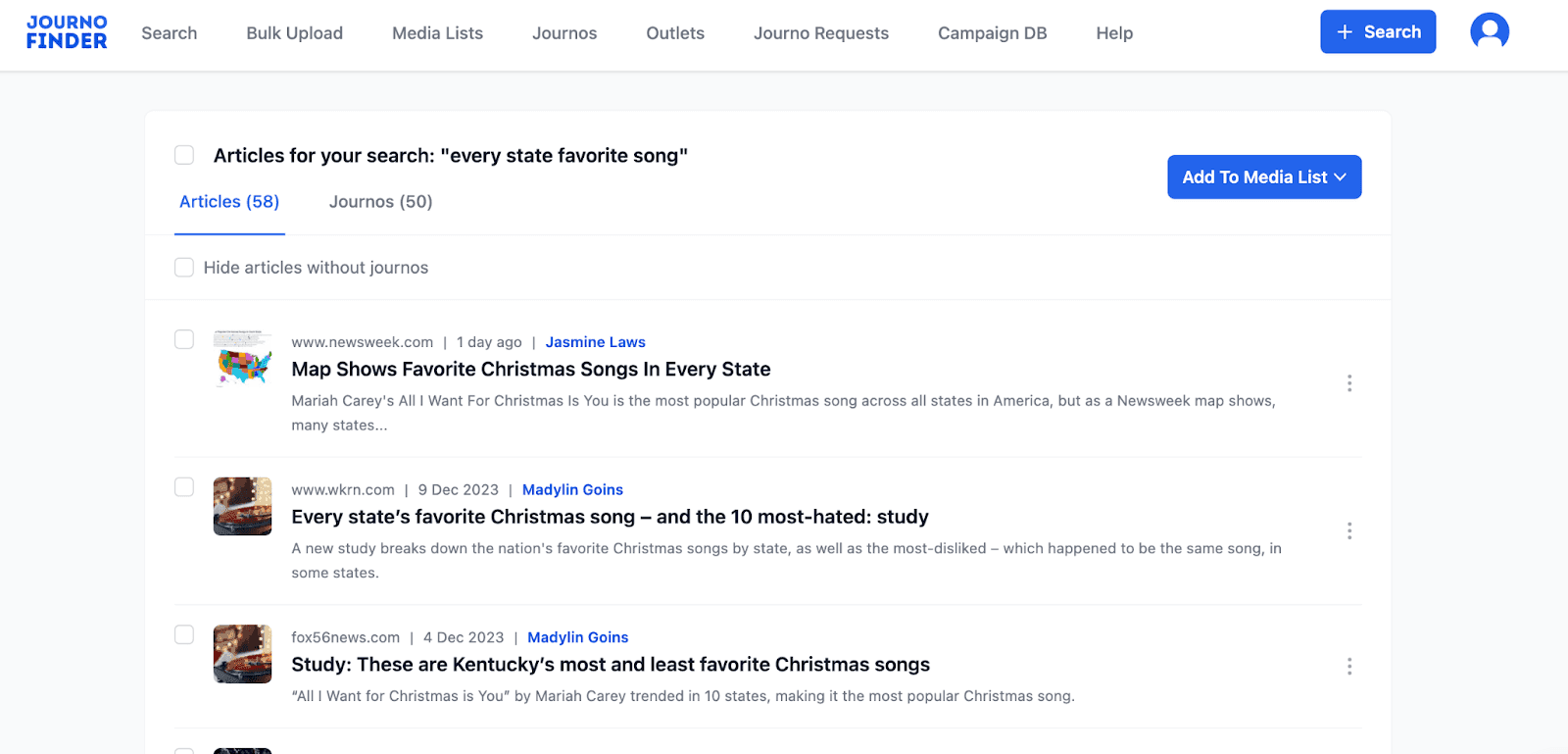
These are very similar subjects in the same niche. Anyone who has written a story about the most popular songs in every state is very likely to also write a story about each state’s most popular movies.
You can then add these journalists to a media list, where you’ll be able to export their contact details.
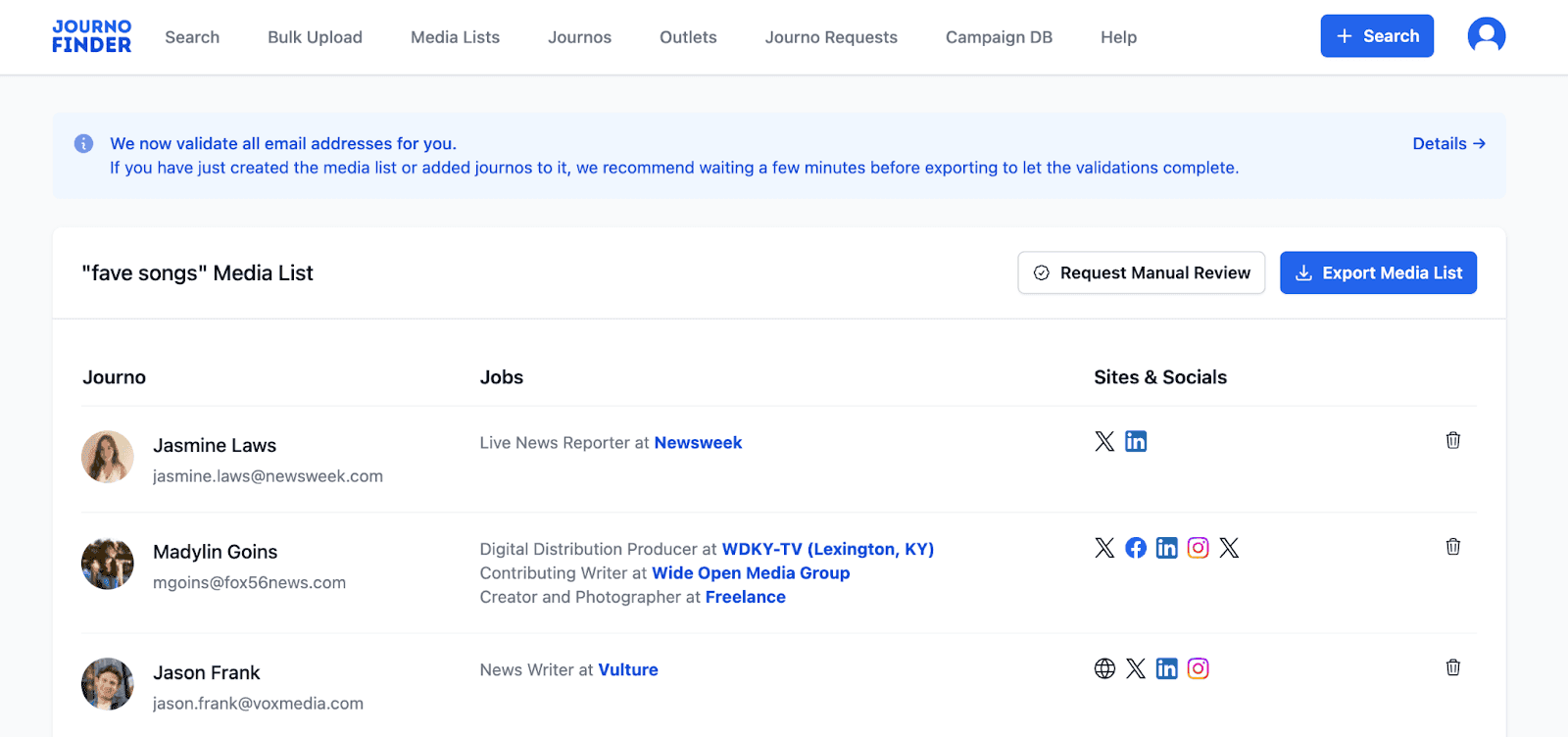
If you want more information about a journalist, you can navigate to their profile to see more information about them including their bio and more recent articles they’ve written.
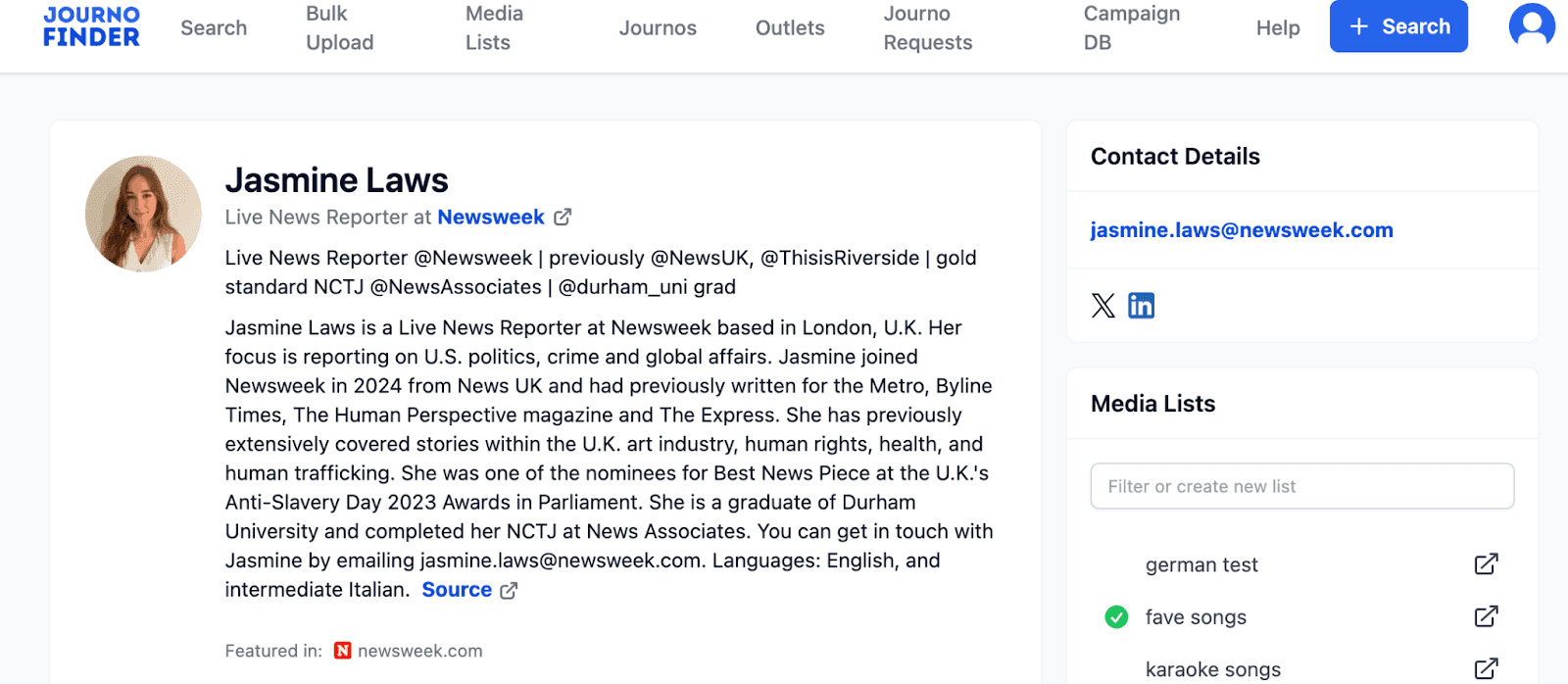
You can filter the search results by time and also by country.
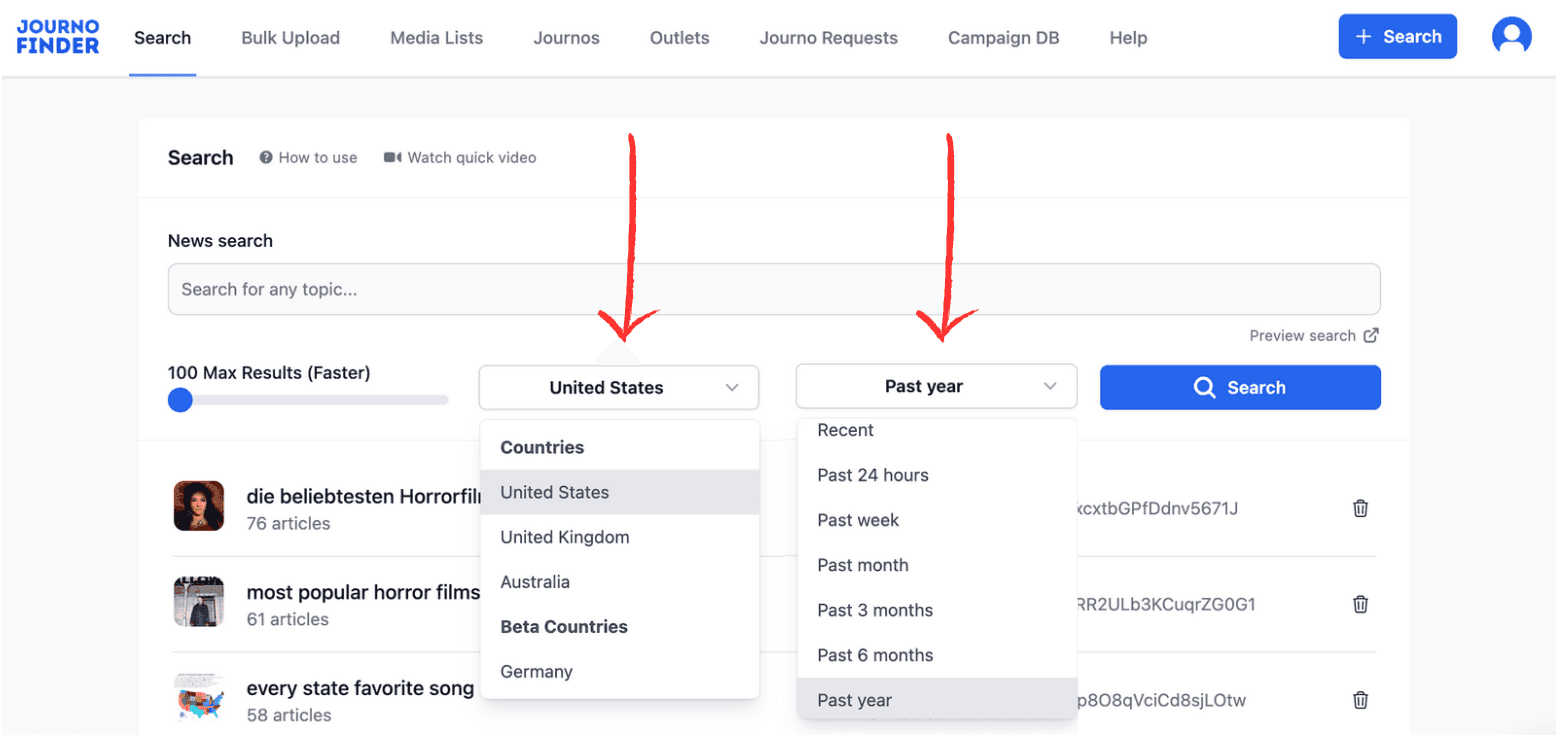
For most searches, I recommend filtering your results to the last 6 months. This will ensure you don’t get too many journalists who have moved jobs since writing the article.
Another option is to search for journalists by beat / job title. Using the example above, you could search for journalists who include ‘covering movies’ in their bio.
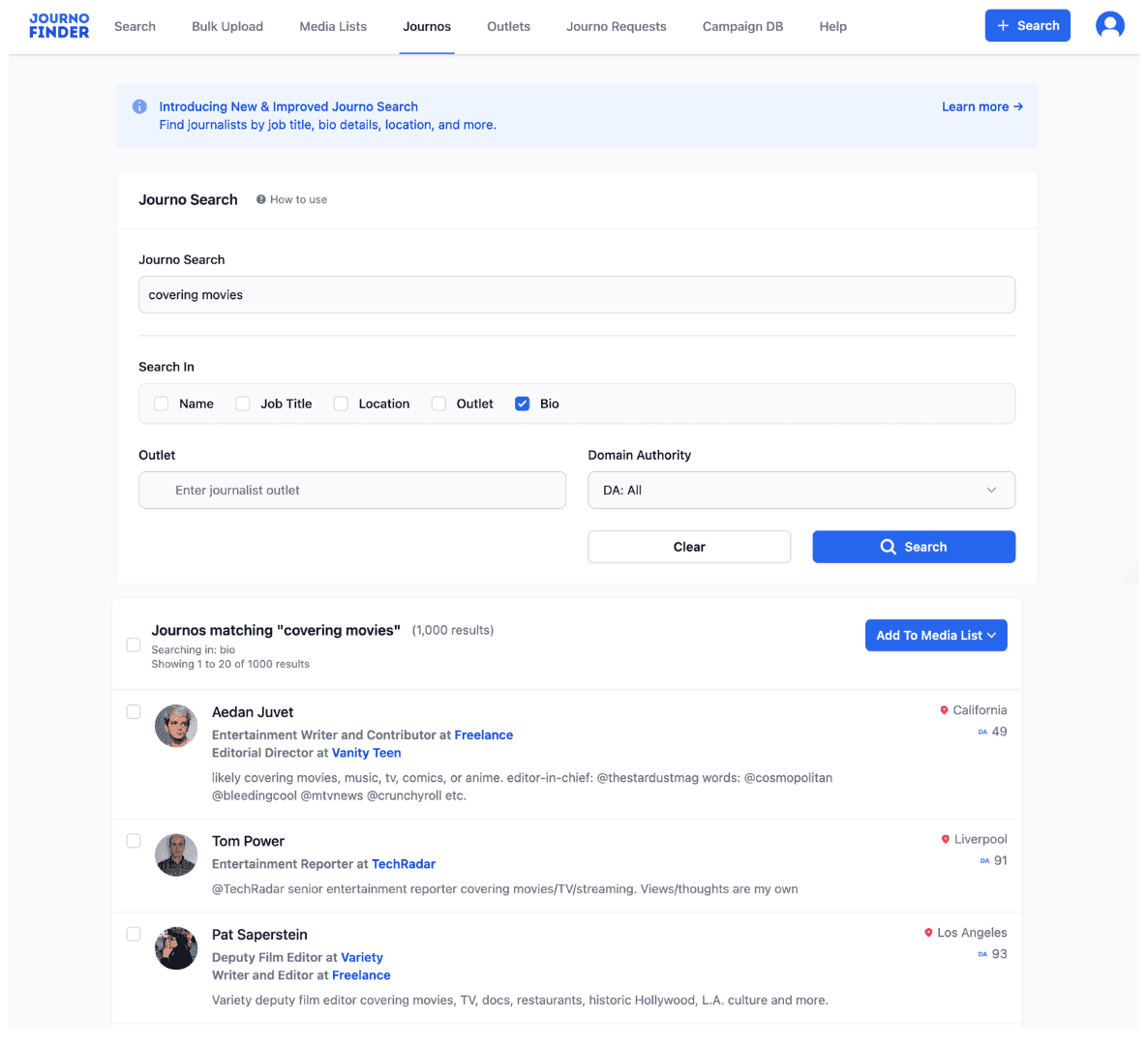
You can try JournoFinder free for 7 days here.
Google news
You can also manually search Google news for articles similar to the one you’re wanting to find journalists for.
Carrying on with the movie example, you can search for journalists who have recently covered popular horror films. These people are very likely to be interested in covering a story on popular Christmas movies.
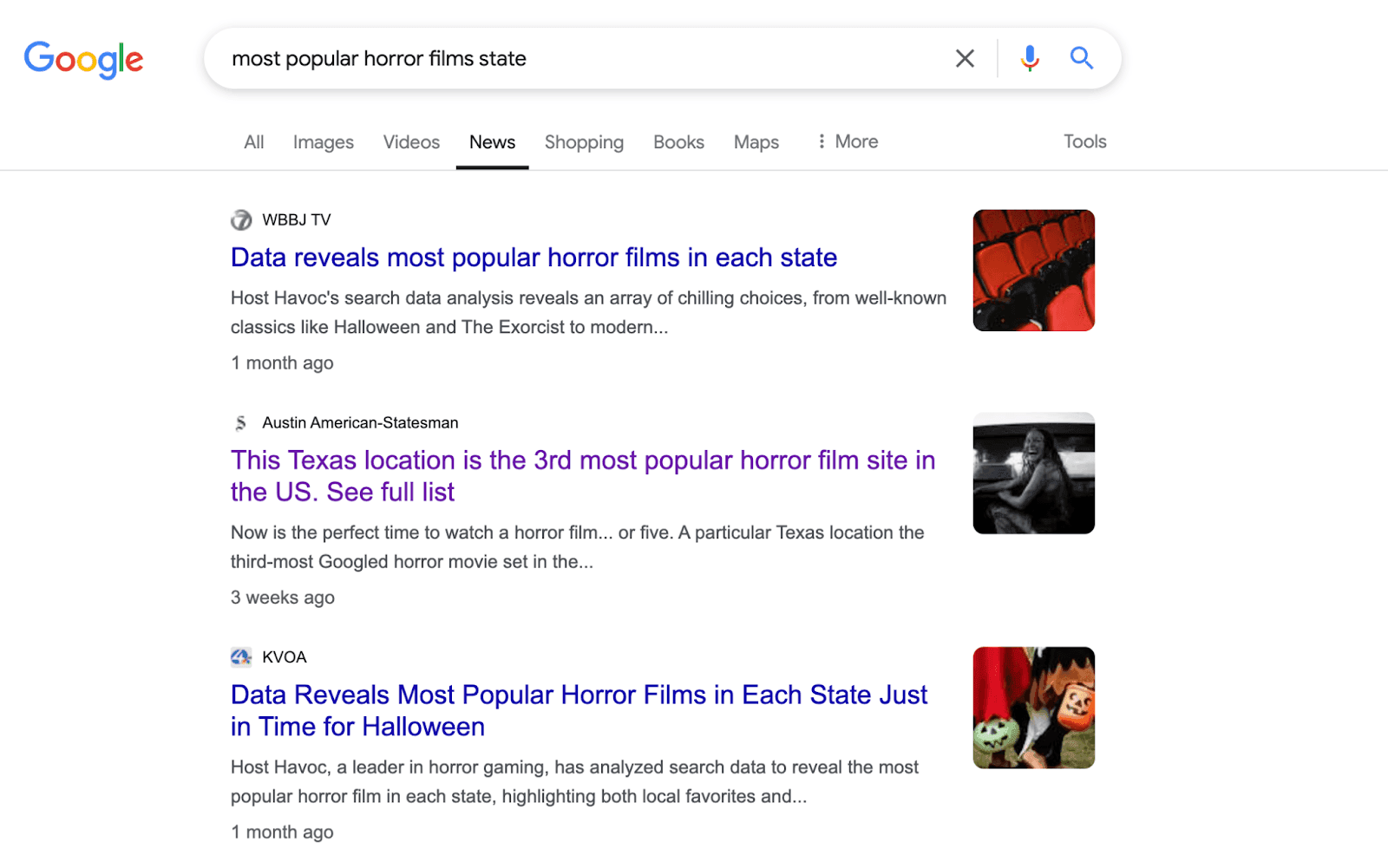
You can also modify your searches using search operators or simply changing the settings.
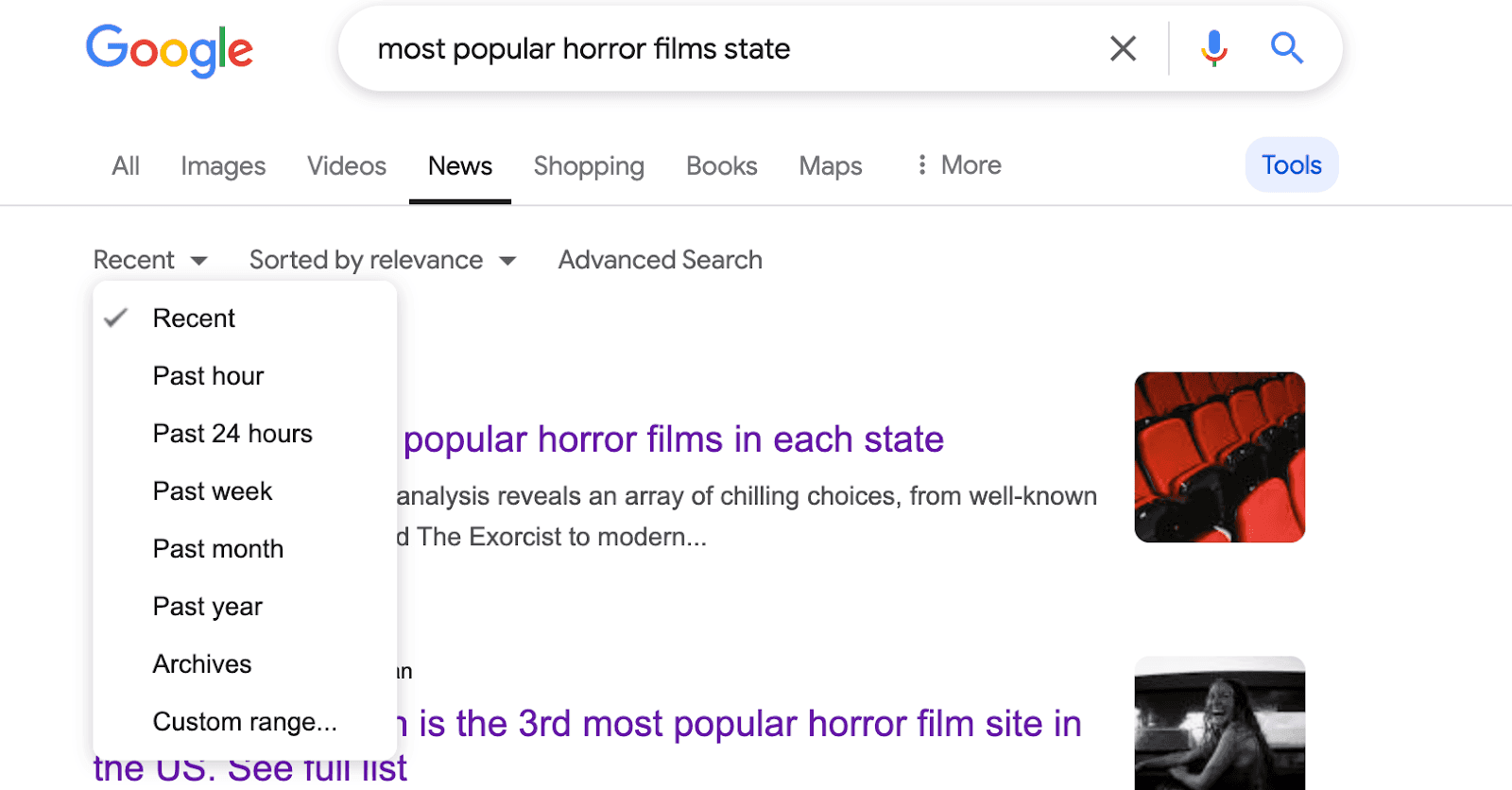
For example, you can choose a time period or use quotation marks to specify a specific phrase like “expert warns” or “study reveals”.
Once you have found a search with some related articles, you need to get the author’s name. You can click through to each article and see the author that way.
For example if we look at the third result from KVOA, we can see someone called “Zachary Jackson” wrote it.
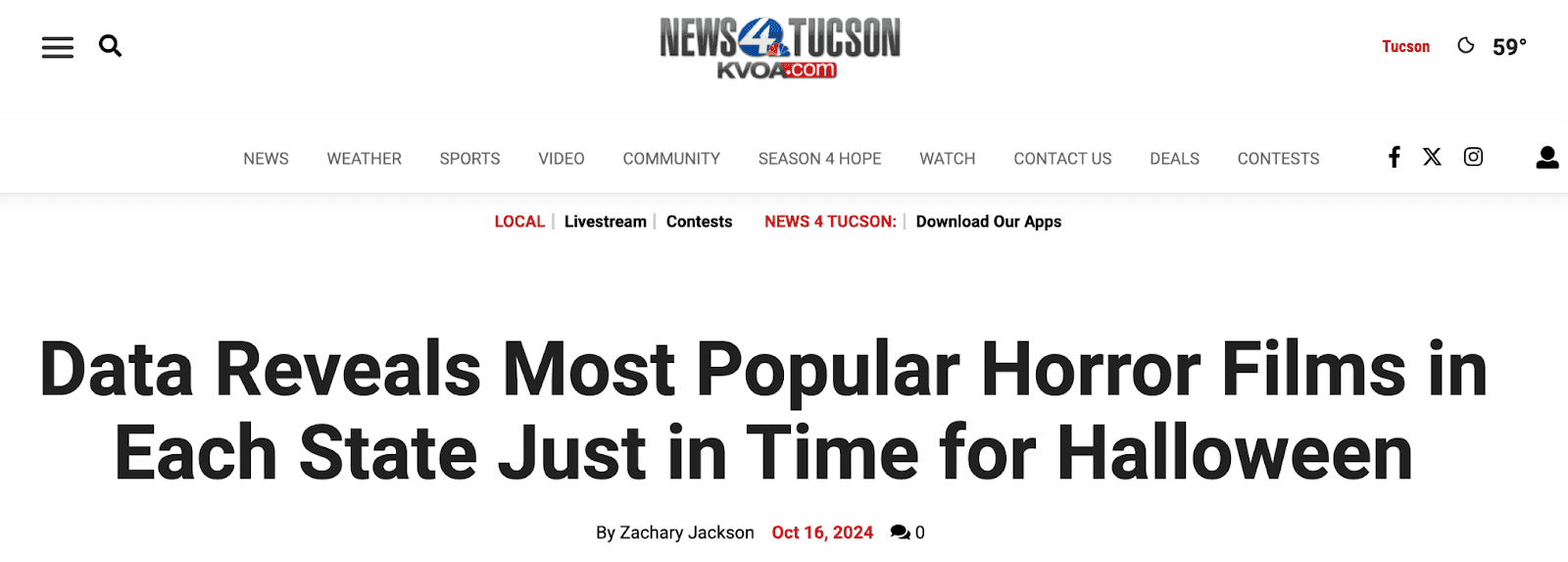
Or you can switch to the ‘advanced’ Google news search, where you will see the author names listed without having to click through and make a note of them that way.
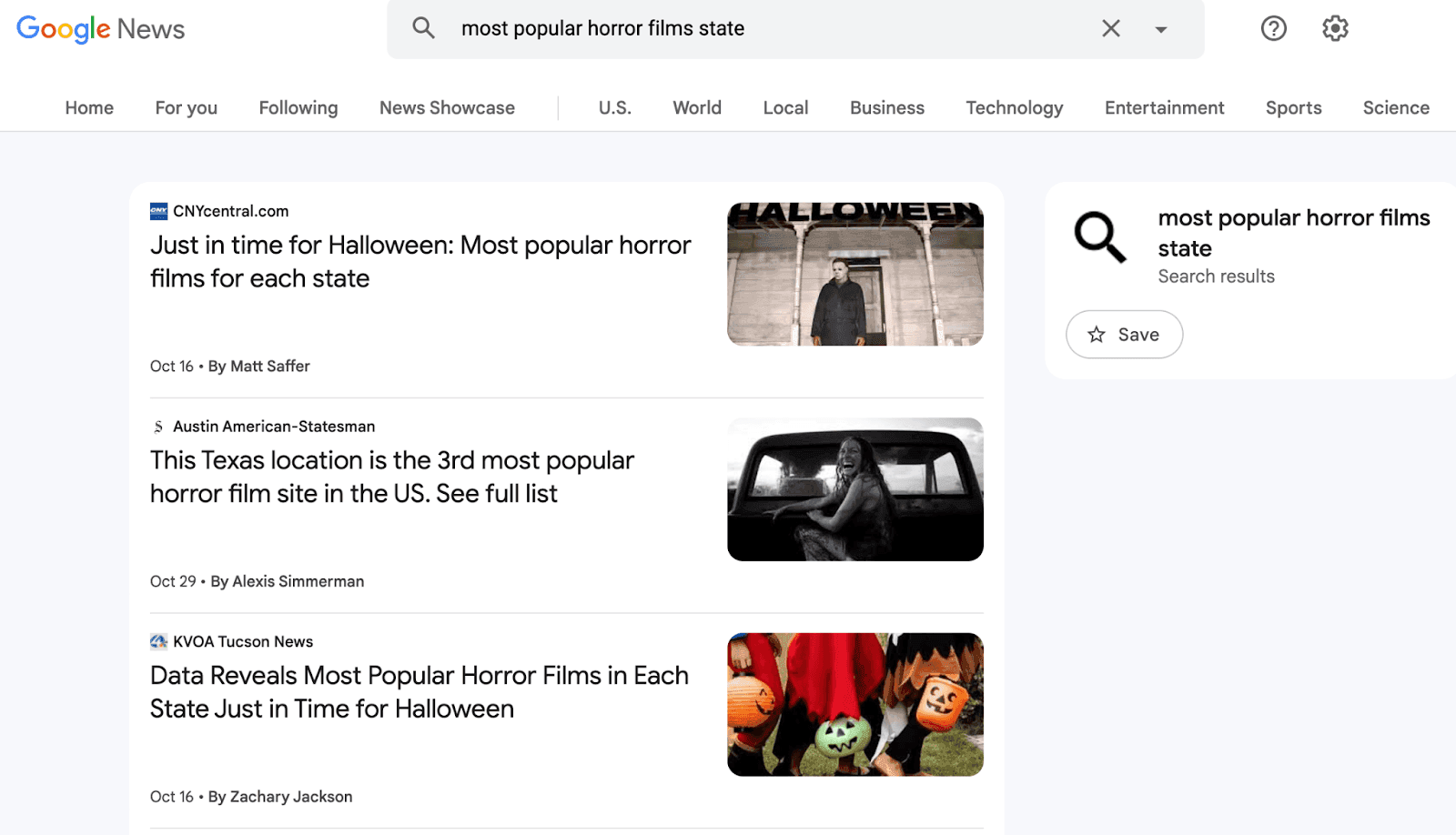
Once you have the names, you will need to find their emails.
Tip: This is the major benefit of a tool like JournoFinder, you could make the same search and all the journalists along with their contact details will be automatically extracted.
Target specific outlets
If you have a particular outlet you are aiming to be featured in, or you have a good idea of the type of outlets that would be interested in your story you can head straight to that outlet to find journalists.
This approach works best for things like regional specific stories.
For example, if you have a story about house prices in Knoxville, you can first google “news outlets in Knoxville Tennessee” to find regional papers, and from there you have a few options.
First, search the outlet for stories related to yours (e.g. “Knoxville housing”).
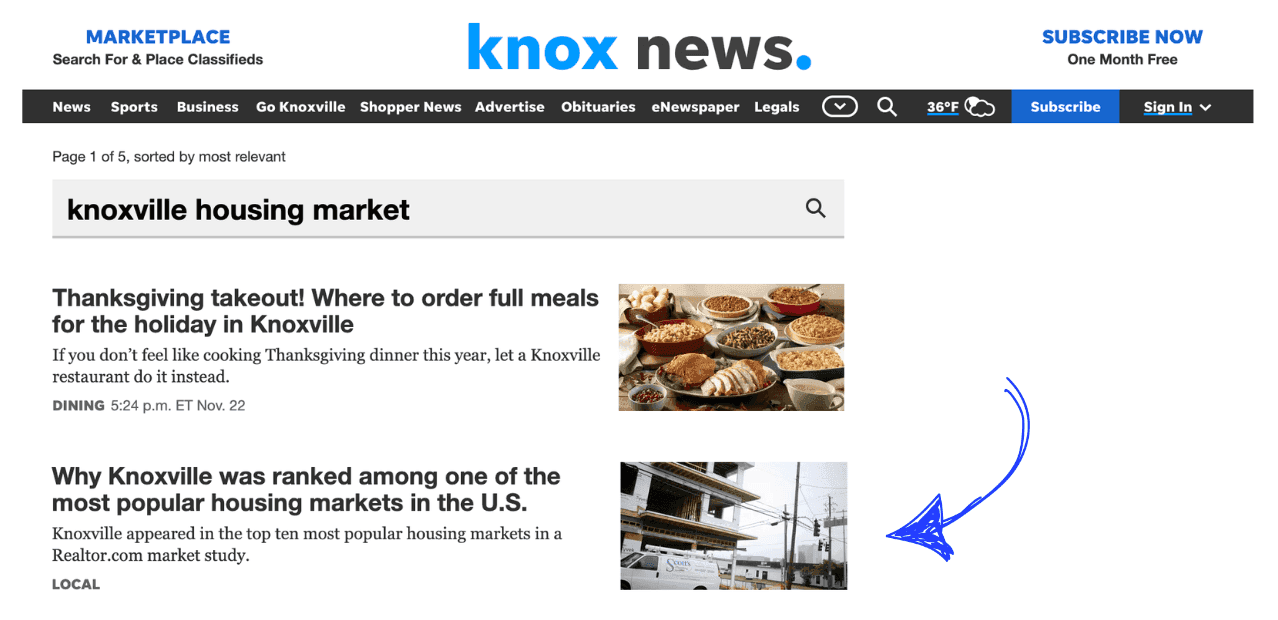
The second result is a story about a study on housing markets, which is very related to a story about house prices, so whoever wrote this could be a good person to contact.
You can also use Google to perform a site search.
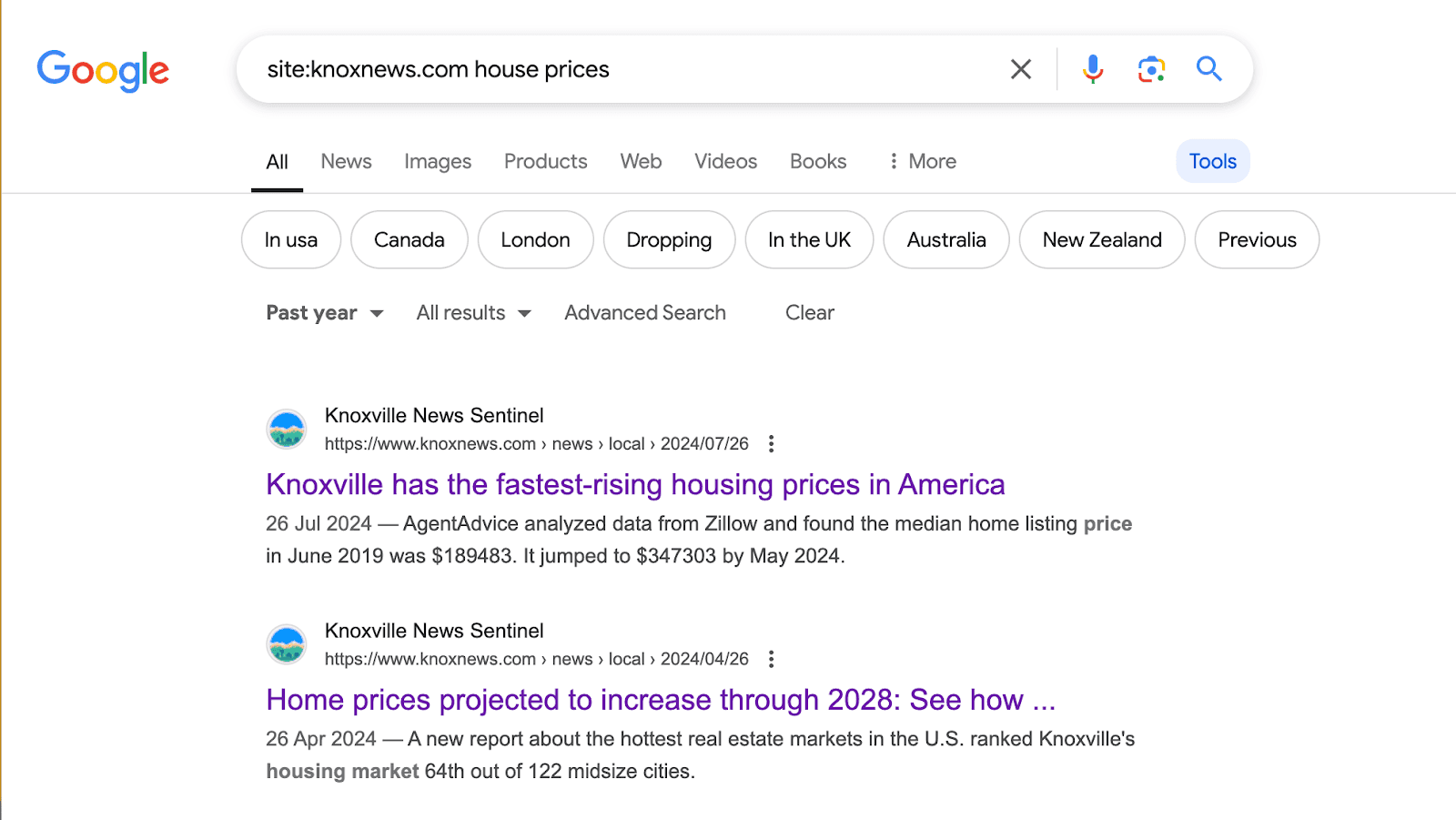
The first result is super relevant - let’s see who wrote it.
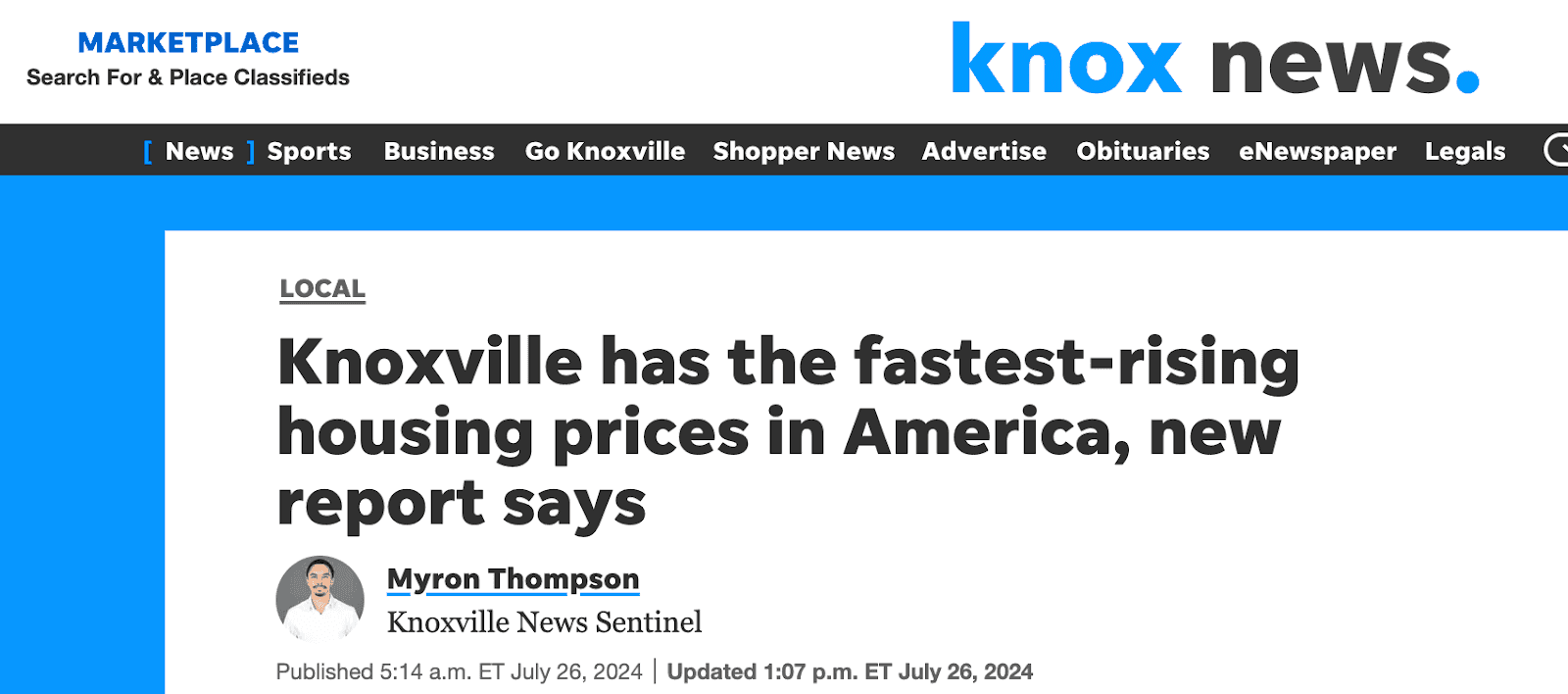
Myron Thompson.
This is the same person who wrote the story on the housing markets from above, so he is looking like a promising person to add to our media list (but I would still recommend doing the relevance checks I outline below).
One issue you may come across with this method is paywalls.
Some outlets will limit the number of articles you can read, which will then mean you can’t see the author of the article.
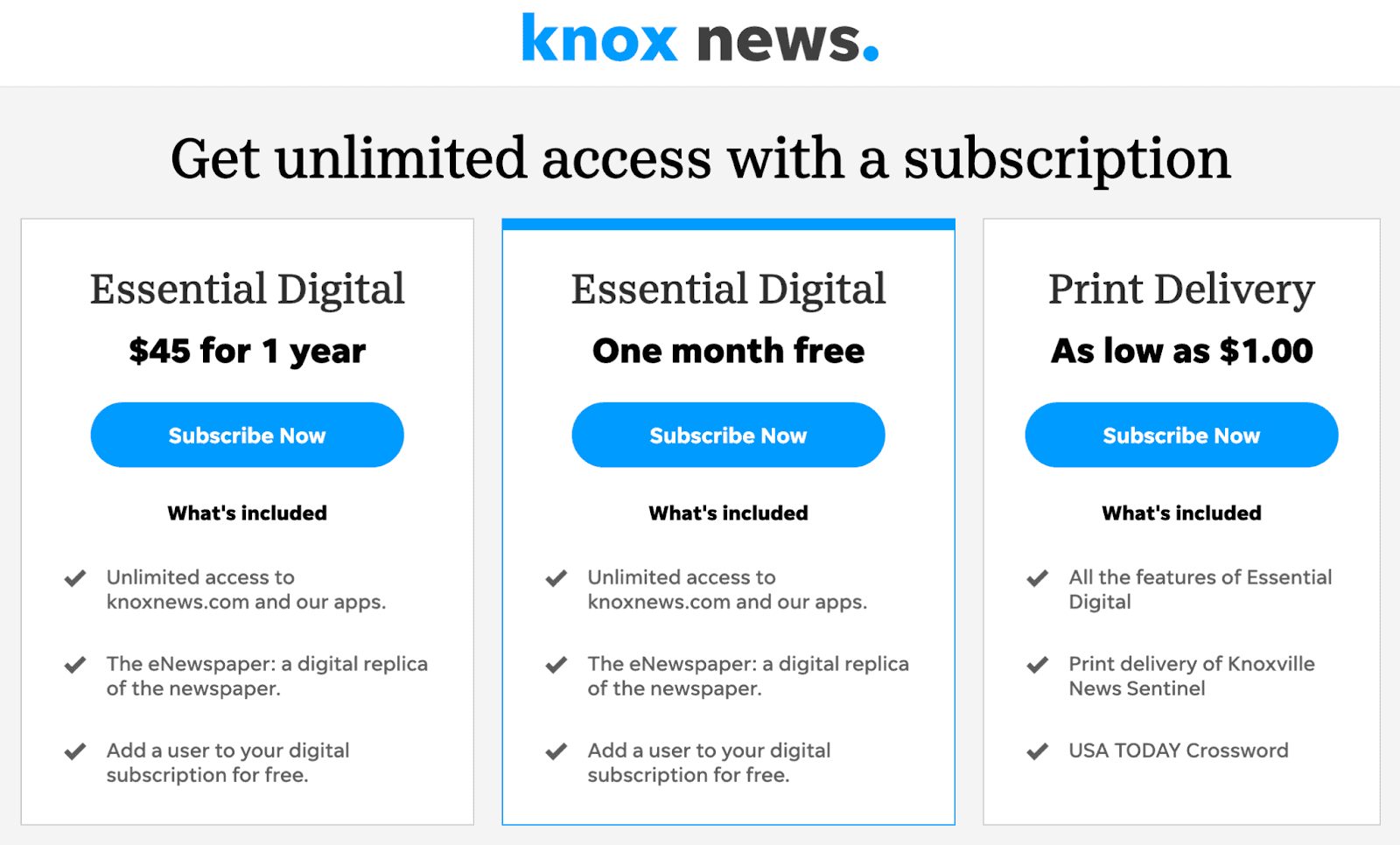
There’s not really a good way round this as paywalls have got more sophisticated and the bypass tools have been shut down.
You can try checking on the wayback machine to see if the article was saved there, but this is rare for news articles. Or you can search for the title of the news article on the advanced Google news search - the author will usually be visible there.
If you know of a reliable way of easily getting round paywalls like these please reach out and let me know!
Your next option is to navigate to a related category section of the news outlet and check who is writing related articles in that section.
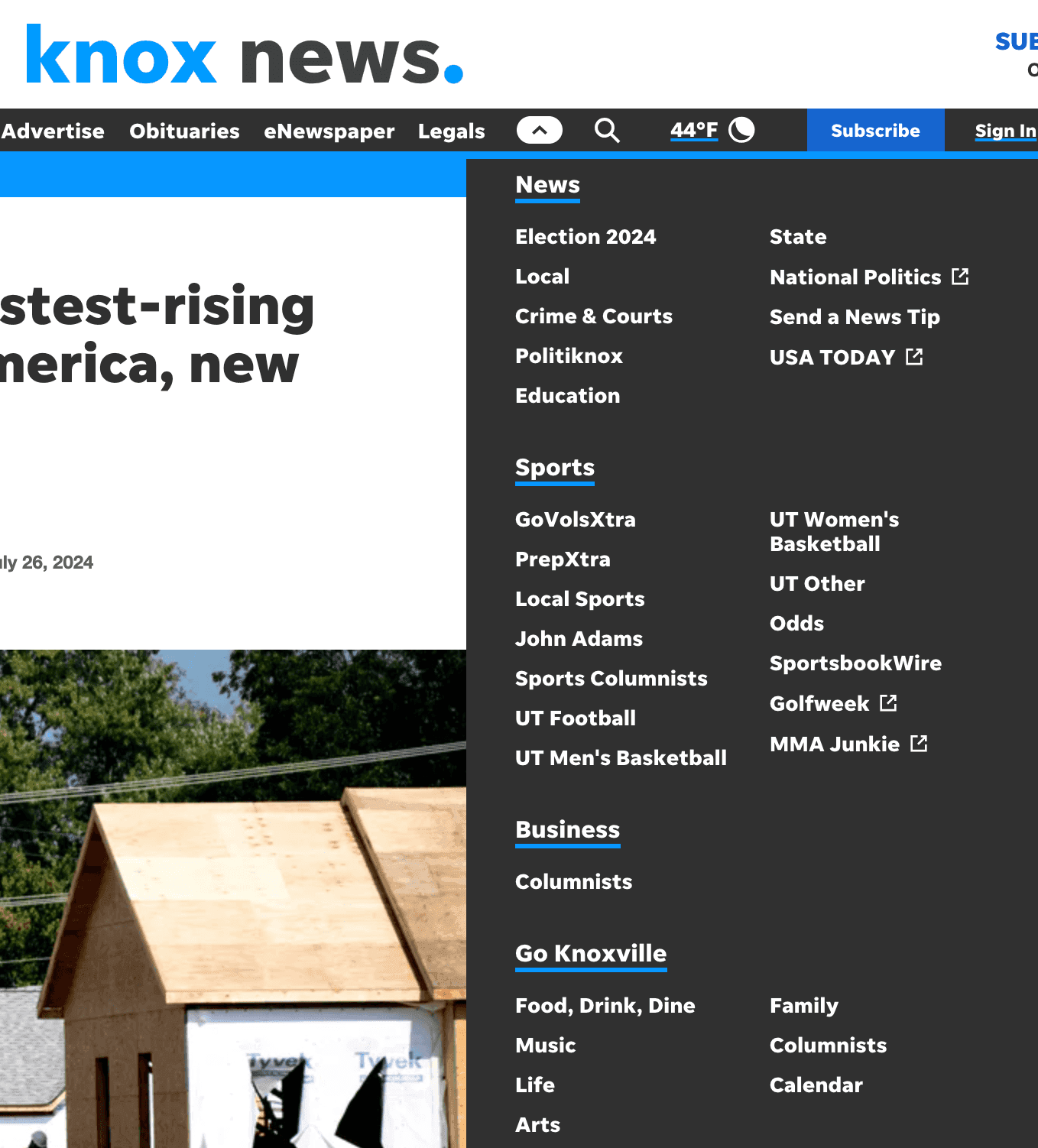
In this case, there isn’t a ‘real estate’ section, but the story is ‘local’ so this is the section I would investigate. The two related articles I found above are also categorised as ‘local’, which further confirms this is the right category to be looking at.
The third option is to check the staff page where it will sometimes list staff and what they cover.
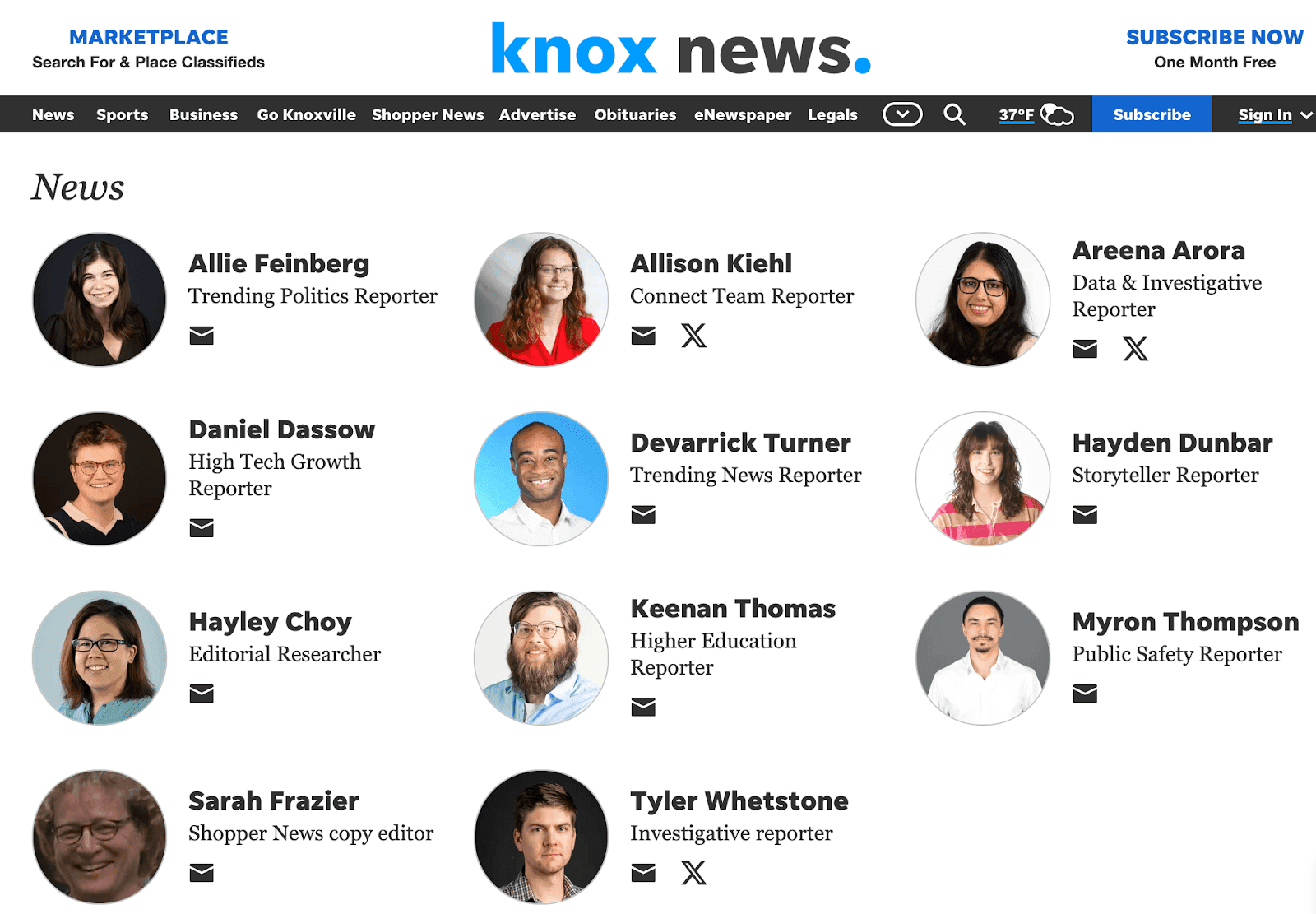
The job titles can be vague, such as ‘connect team reporter’, but you can check their personal profiles to get a better idea of the types of articles they write.
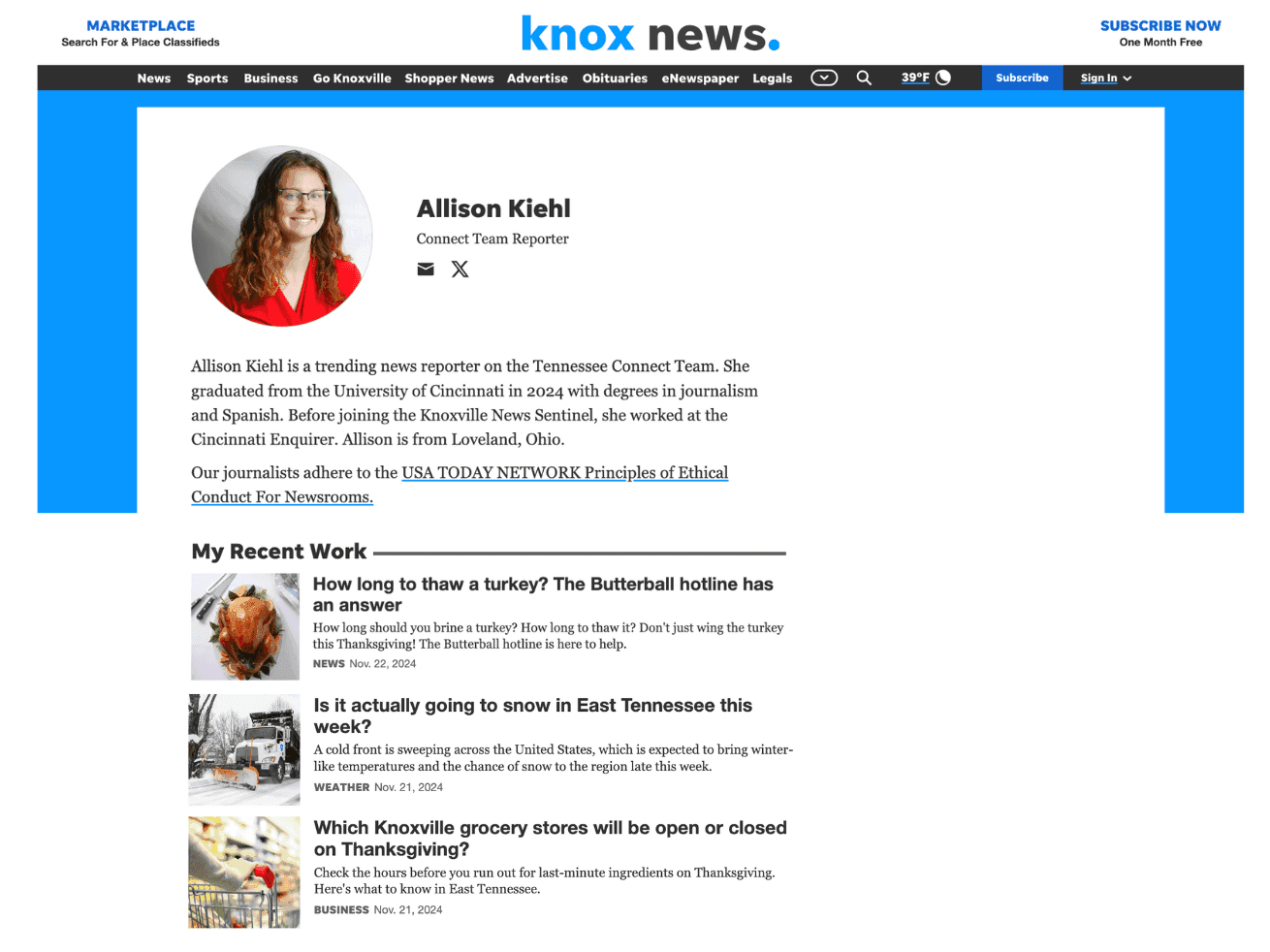
Here you can see Allison covers trending topics, such as Thanksgiving and snow.
When you’re deciding which journalists would be best to contact from the staff page, you should focus first on reporters. You can also contact beat editors e.g. “business editor”, especially if they are actively writing articles.
Simply ‘editors’ will be receptive to pitches, but the nature of their jobs means they generally won’t have time to go through many pitches so it’s more likely your email will go unread.
The size of the publication also matters here.
For smaller publications (like the one in our example), one reporter can cover multiple beats and editors will be more likely to look through the pitches they receive - they may even write articles.
In larger publications, the journalists will have narrower coverage areas and there may be more than one person covering the same beat.
Editors of larger publications will have very busy inboxes, so it will be harder to get your pitch noticed. They will be unlikely to write any articles of their own.
Backlink checkers (e.g. AHREFs or clicks.so)
I use these backlink checkers in two different ways.
The first is if I come across a recent digital PR campaign that is similar to mine, I will look at the backlink profile and pick out relevant journalists who covered it from there.
Here I’ve put Wallet Hub’s recent study on the best sports cities into clicks.so and ordered the backlinks by first seen.
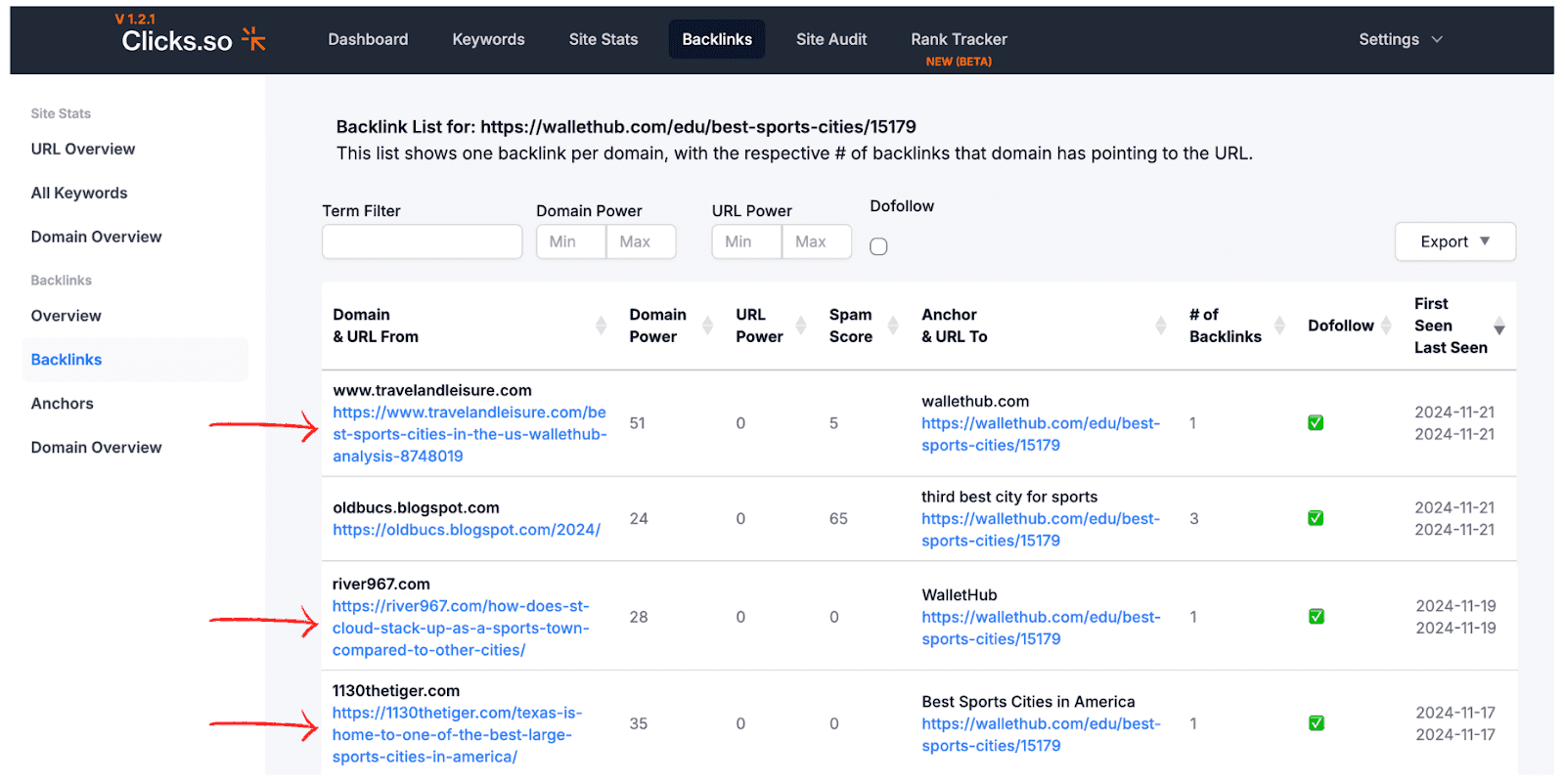
This brings up a list of news articles that link to the study.
I can then take these URLs and manually extract the authors and find emails.
Or if you’re using JournoFinder, you can export the URLs and paste them into the bulk upload tool.
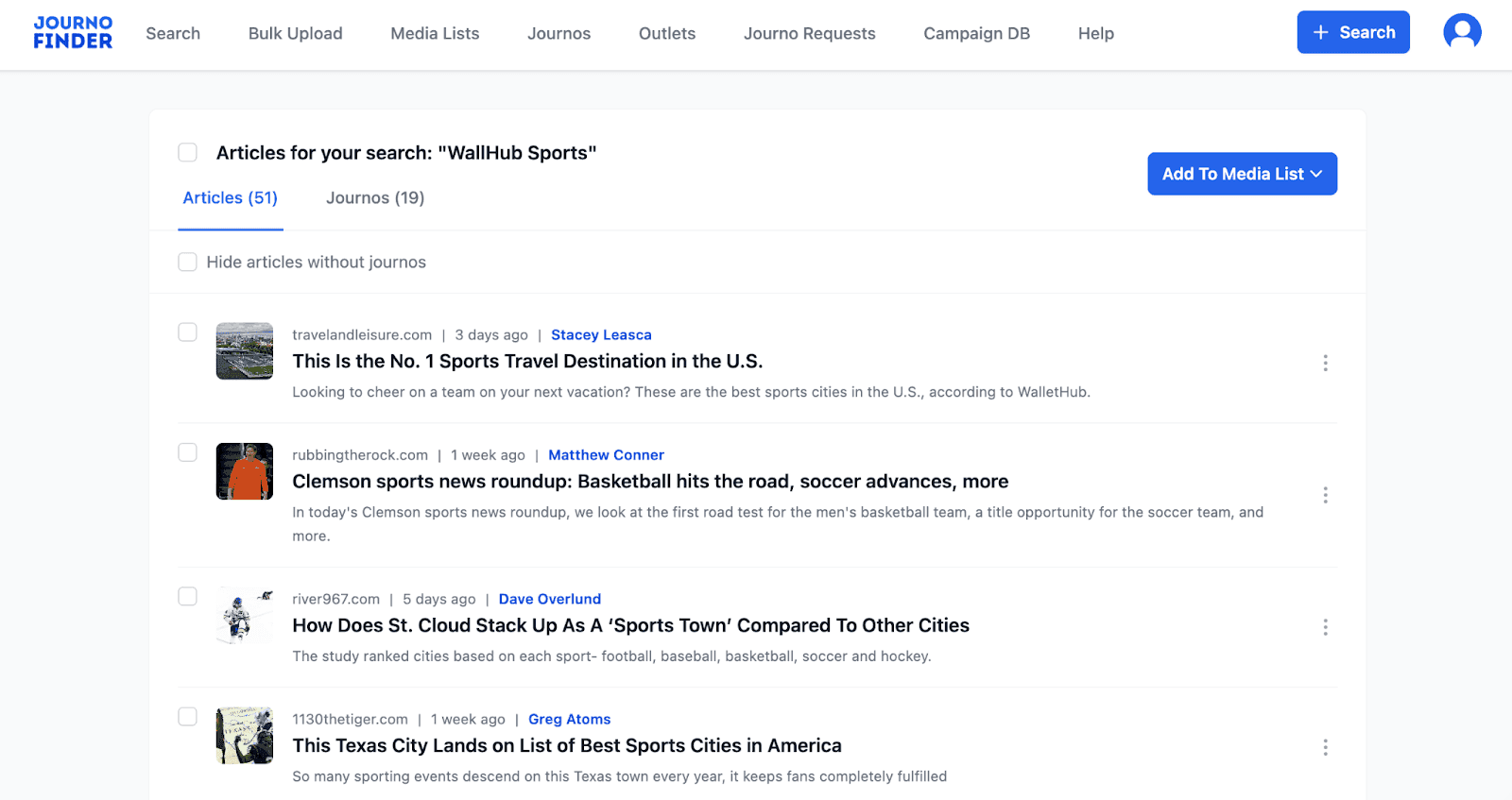
This will automatically extract the journalists, so you can add them to your media lists.
The second way is to use the AHREFs content explorer. It’s no secret that Ahrefs has an incredible content database.
It has over 15B indexed pages that you can filter and sort in seconds.
Use the content explorer to search for a topic related to your digital PR campaign and apply filters such as language, publication date, DR, “News Sites” only, etc.
E.g. here i’ve searched for “best cities for sports fans”.
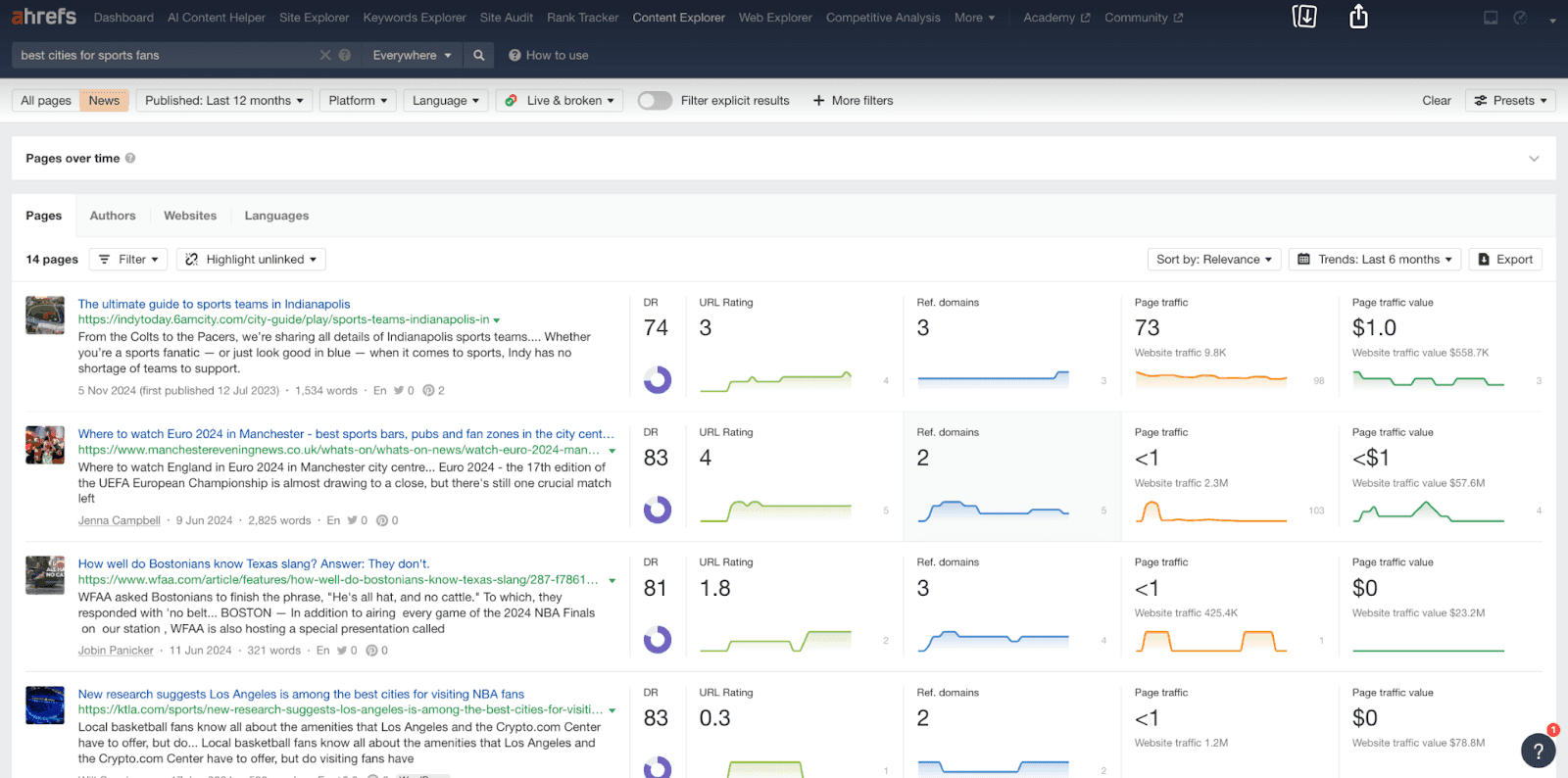
You can export the URLs and again either manually extract the journalists or use JournoFinder’s bulk upload feature.
Social media
Lastly, you can use social media.
Twitter (or X) is the best platform for finding journalists, but a lot of journalists has also moved over to Bluesky Social so both are worth checking out.
LinkedIn is another option.
Whatever platform you’re on, you can search for a journalist by job title.
For example, if I had a travel related story I might search ‘travel journalist’ or ‘travel reporter’ and then scroll through the people tab.
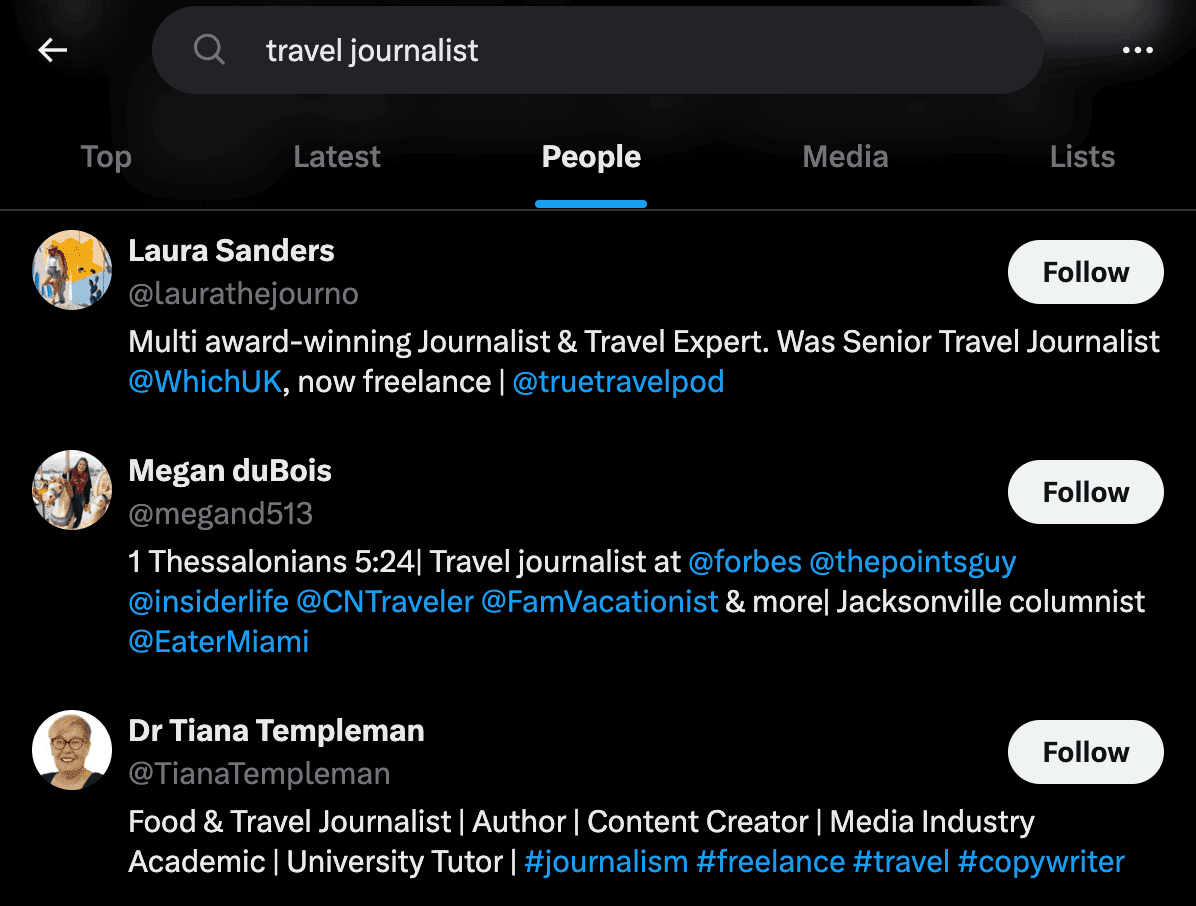
Or you can search relevant hashtags.
For example you could search #travelnews, and then investigate the profiles of anyone who is regularly using it.
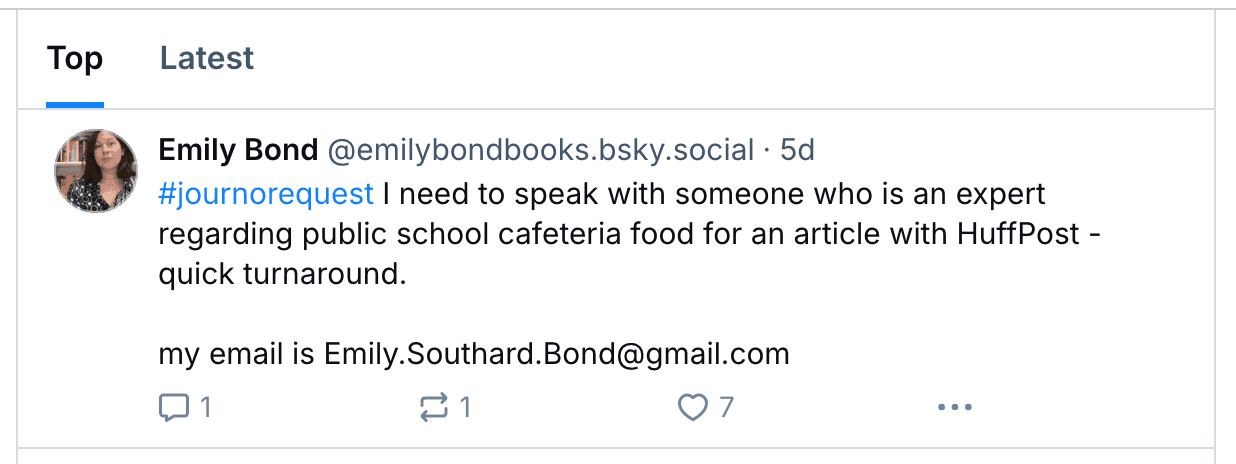
Tip: you can also follow hashtags such as #journorequest and #prrequest. Journalists will use these hashtags when they are seeking experts to provide commentary for their stories.
Or if you don’t have time to scroll through the hashtags, you can use JournoFinder’s alert system. You can enter your topic of expertise and we will send you an email alert when a relevant tweet appears.
Confirming journalist suitability
Once you’ve found a journalist you think could be a good fit, the next step is to confirm this.
Just because someone has authored a story related to your story, this doesn’t automatically mean they’re a good fit for your media list.
My mantra is: quality over quantity - a focused list of 20 relevant journalists is more valuable than a scattered list of 100.
For each journalist I would:
Check the journalist still working at the publication and covering the same beat?
Journalists move around often, so someone who wrote a related article a few months ago could well have moved jobs.
Sticking to searching for articles written in the last 3-6 months should minimise the amount of times this happens, but it’s always worth checking.
If you’re looking at articles more than 6 months old, the chances of the journalist having moved jobs is higher.
You can check this a few ways.
The first is to navigate to their about page on the publication and check when the last wrote an article. If it was a while ago it’s safe to assume the journalist has moved on.
You might also see the description say ‘former reporter’ or ‘Joe was a reporter…’, both of which indicate the person no longer works there.

You can also check the journalist’s LinkedIn profile or Twitter bio, but be aware it’s up to the journalist to update these so they’re not 100% reliable.
A good old Google search can also be helpful.
The journalist might tweet or write a post on linked in if they’re switching jobs.
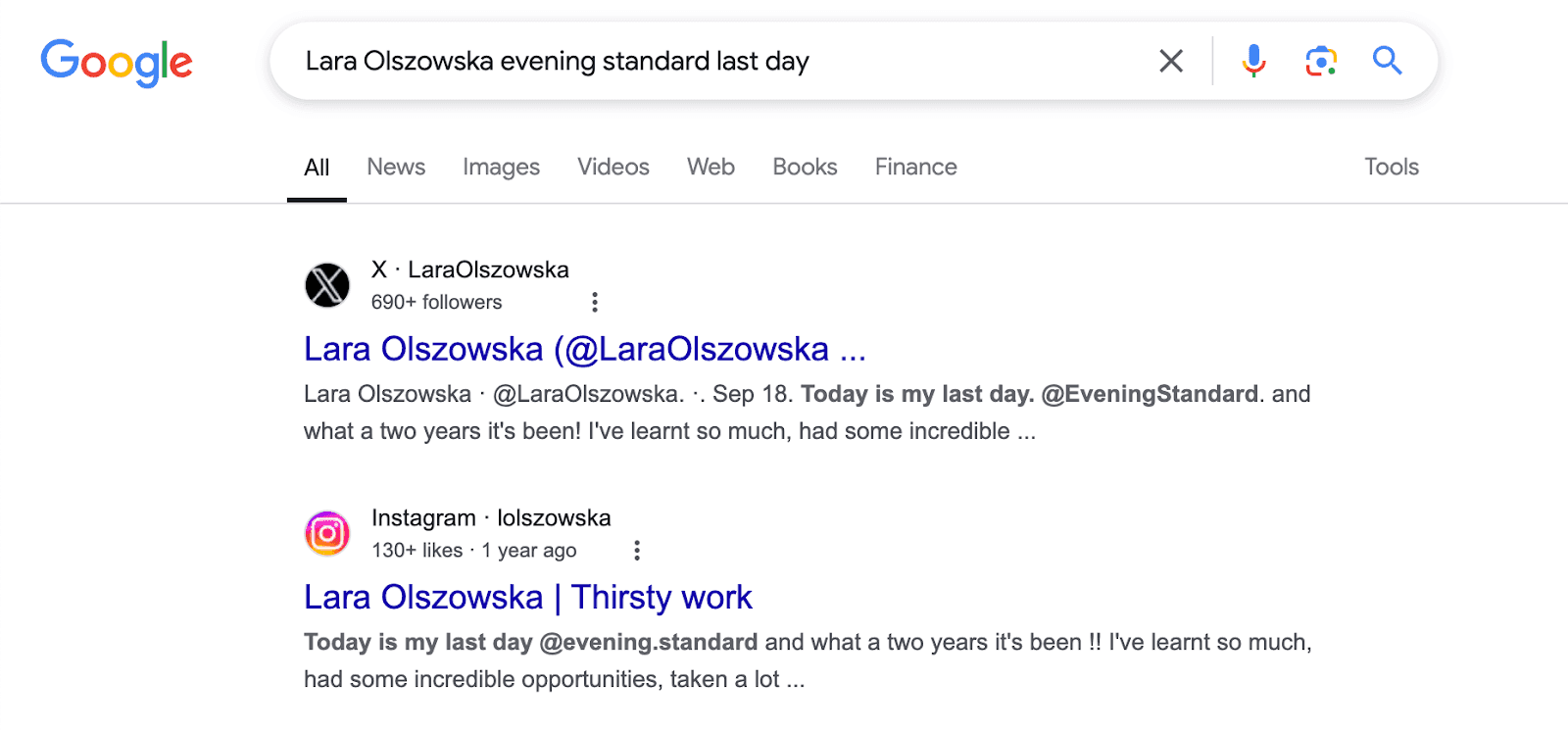
In some cases, you might find that the journalist still works at the publication, but has changed roles since writing the article you found them on.
They might have been promoted to editor, or they might have switched from business reporting to breaking news reporting - both moves which would render them less ideal for adding to your media list.
You can check their job title via their about page, or take a look at their recent articles and infer what they cover from there.
Tip: you can look at a journalist’s page on wayback machine to confirm if their job title has changed.
Verify coverage area
Sometimes you will find a journalist who has written a relevant article, but when you investigate further you will find they’re not actually a good fit.
For example, you might have a story on the best strawberry patches in the UK and be researching journalists who have written about the best pumpkin patches in the UK.
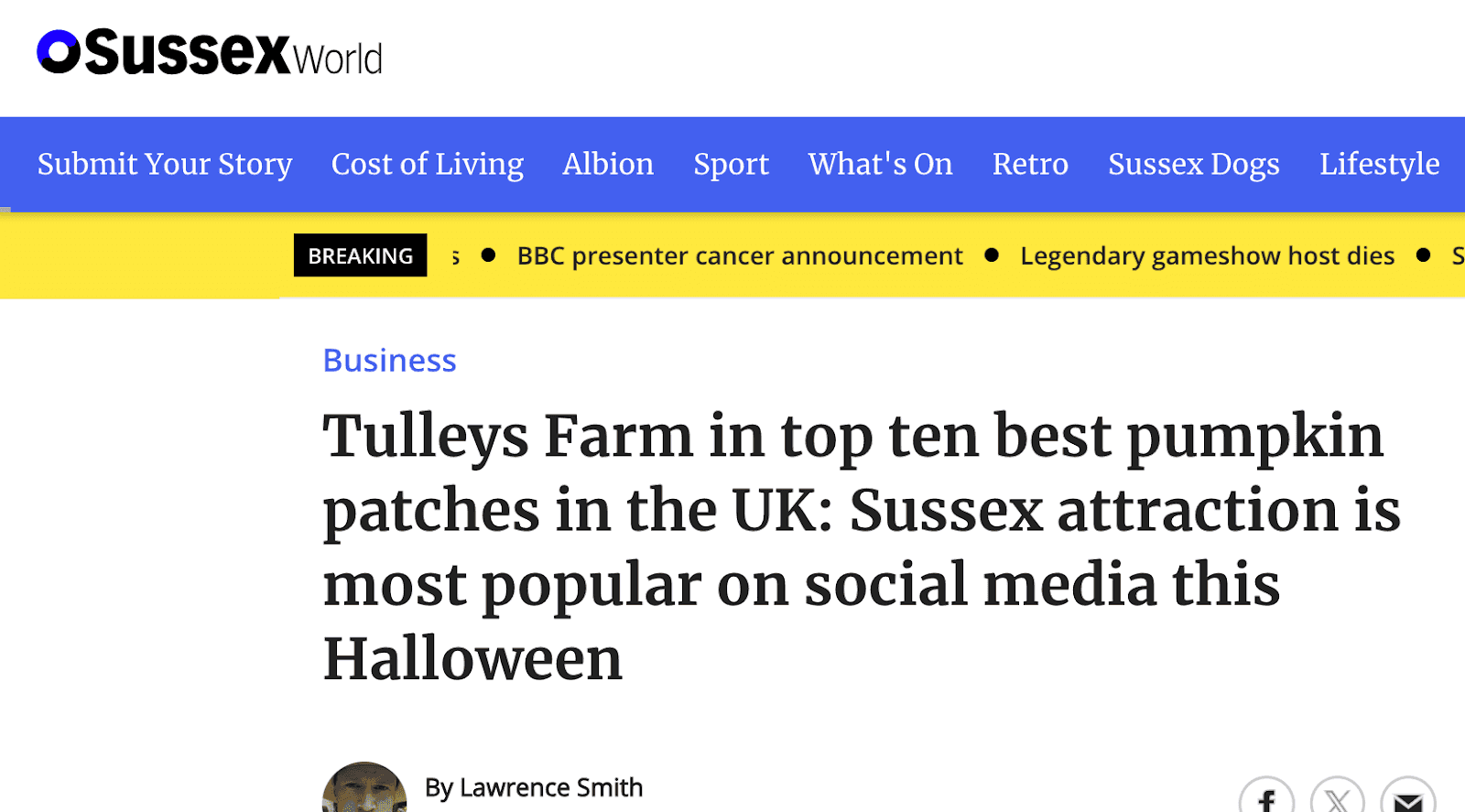
On the face of it, this looks like a great person to contact.
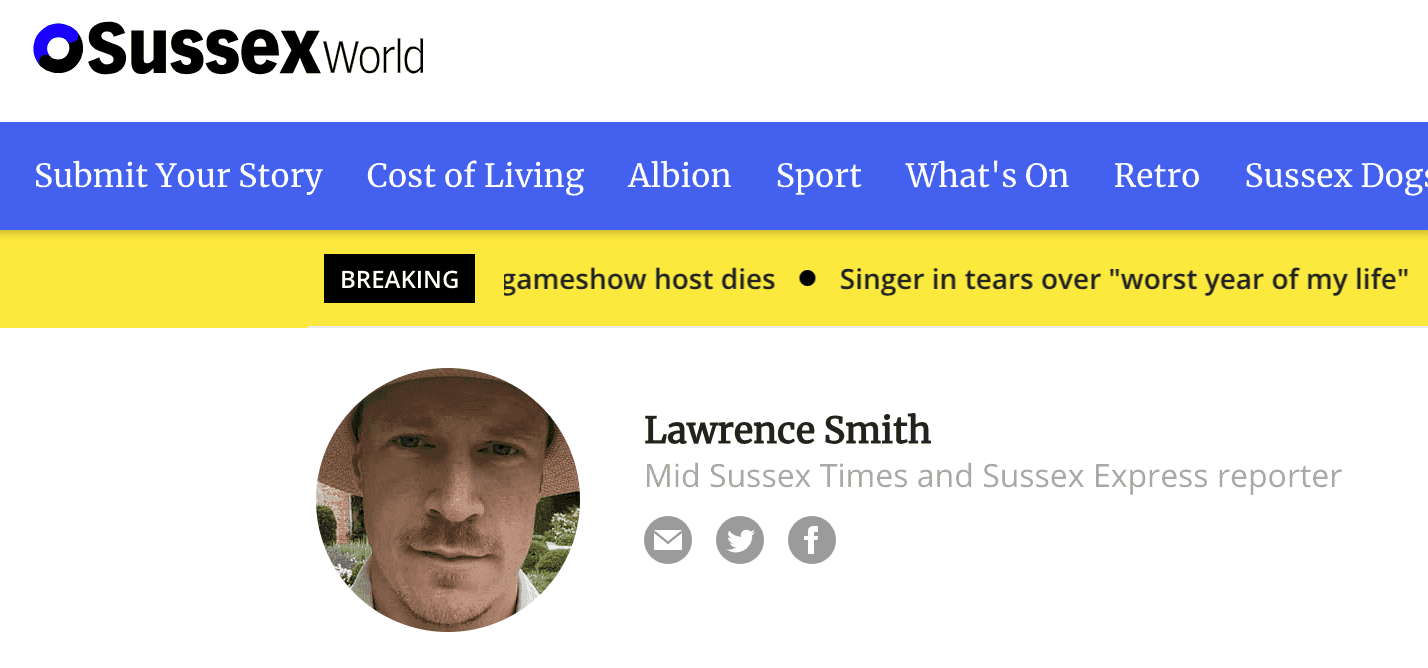
But when you look further, you realise this journalist is actually a local reporter for the Sussex area, and the only reason they covered the pumpkin patch story was because it was related to their region.
If none of your strawberry patches are located in the Sussex they cover, they are unlikely to cover your article.
Have the journalists recently covered the same story?
If you’re pitching a commonly done digital PR study, you might find some journalists who have recently covered the exact same story.
Journalists will generally not want to cover the same story in a short period of time (3-6 months), so it’s not always worth reaching out in this case.
If you have a fresh spin on the data, they might be interested but you would need to make it clear in the subject line and pitch why your story is different to the one they just wrote.
How to contact the journalists
Once you’ve identified relevant journalists and confirmed they’re a good fit for your media list, you need to find their contact details.
If you’re using a media database this is easy - the emails and social profiles will already be provided for you.
If not you can try and find their email address yourself by:
- Looking for their email in their article bylines or author pages.
- Checking their social media profiles or personal websites.
- Searching google for their name, outlet, and “email” or “contact”.
- Using an email finding tools like Hunter.io.
I go into more depth about each of these steps in this article on how to find journalist contact details.
If you can’t find their emails - you can try reaching out to them on social media (X is generally where journalists are most active).
Calling the journalist is also an option if you have a phone number, but I would only recommend this if you are 110% sure your story is a good fit for them.